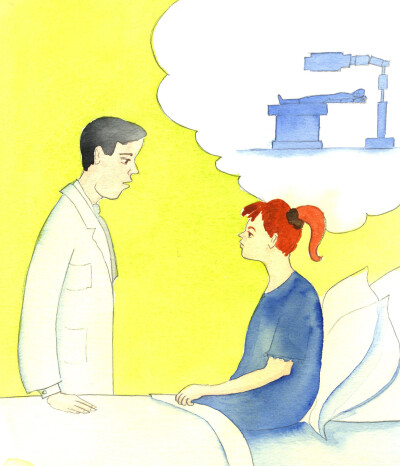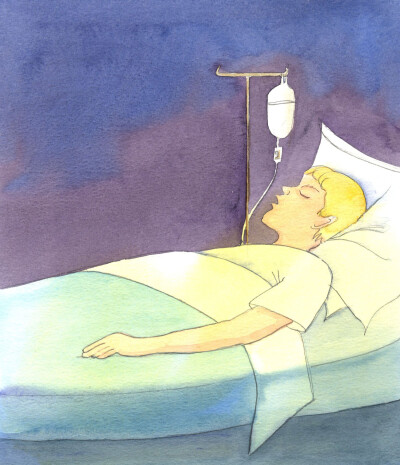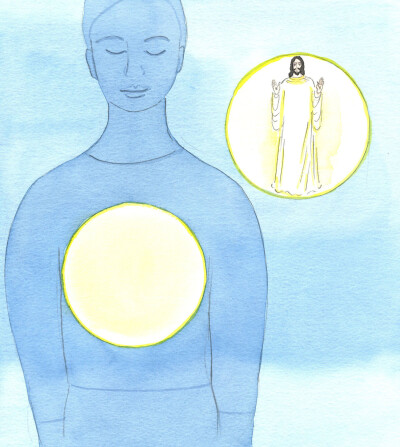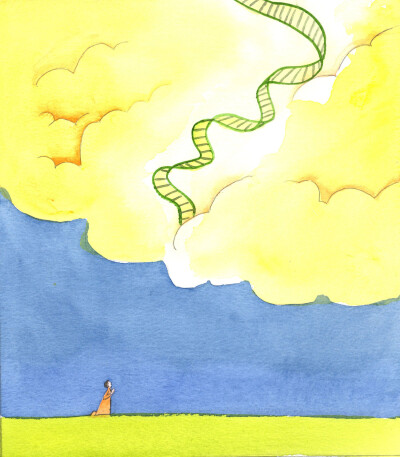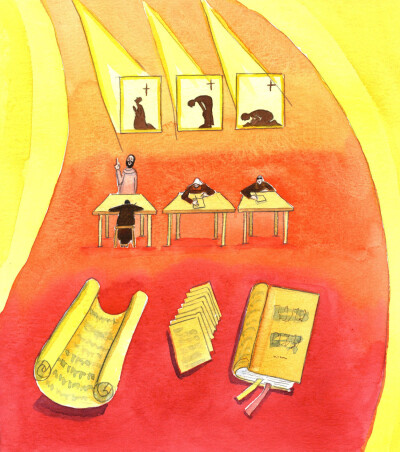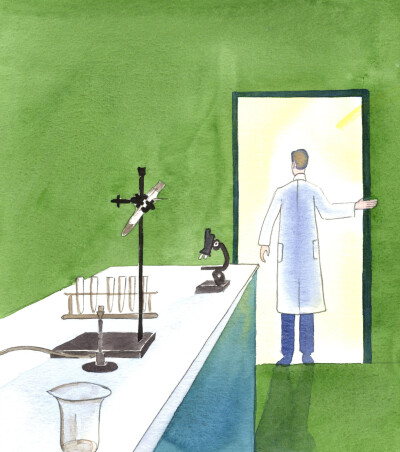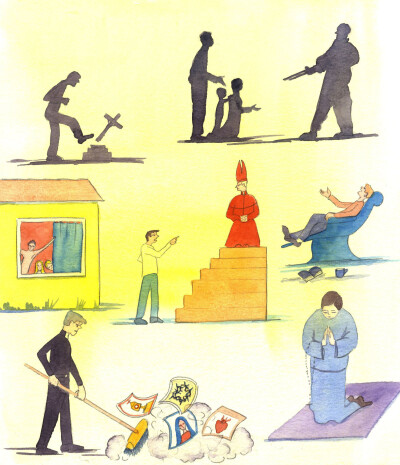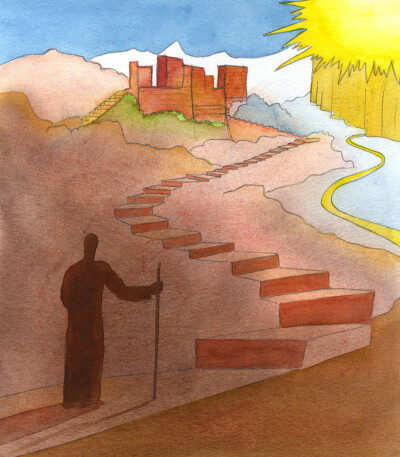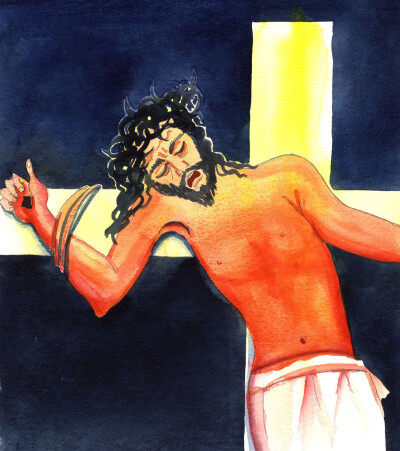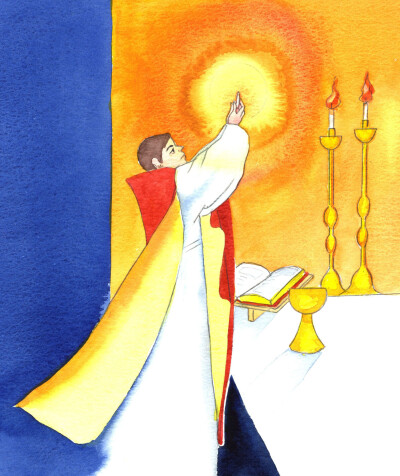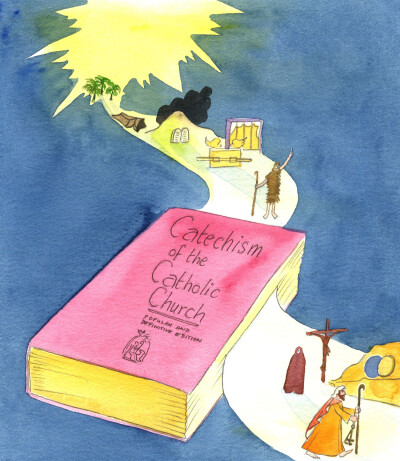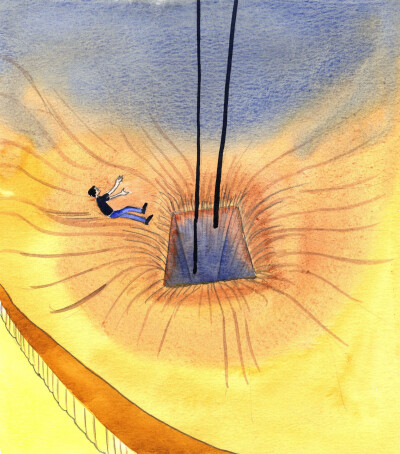Images » All Images
Showing 3601 - 3620 of 5265
A sick person who is asked to undergo certain therapies which in fact would poison or burn her badly does not have to accept every suggestion. Her duty is to preserve her life, but not necessarily by extraordinarily painful means. She must be aware that doctors cannot act without her consent.
A sick person should not feel obliged to accept very painful treatments which she is not convinced will cure her. But she is right to expect humane care, which every human being deserves, receiving food and nourishment, and also pain relief if available.
If we wish we could give to a beloved relation all the wisdom and goodness that we have received from God in a life-time, the best means is by encouraging them to receive Christ with devotion in Holy Communion. In Christ is His Divinity, wisdom, power, beauty, and goodness: more than enough to fill our hearts, if we open our hearts fully to receive Him.
Every day is a new day, in the life of a Christian, no matter how mundane or routine was the previous day. Each day stretches ahead like an area of countryside to be traversed - with no knowing what might happen. God can intervene in our quiet lives through people: through phone calls received, sermons heard, or through insights and requests offered by the Lord in prayer.
The great MIND of God, that made human DNA and the genome, cannot be understood by human beings; nor can the Godhead by pierced by thought alone. He should be adored; yet He has revealed Himself in and through His Son, God-made-man; and Christian mystics, through Christ, can see deep into the 'heart' of God.
The Church teaches the truth, in every age of our history, yet each of the mystics experiences it - for example, St Paul, St Teresa of Avila, St Thomas Aquinas. It is the Christian mystic who prays with trust, reverence and humility, who knows God better than anyone, through union with Christ in prayer. The mystics have produced the most lyrical and intellectually-coherent accounts of what they have learned of God - which knowledge echoes and confirms the truths taught by the Church, and illumines them.
Christ showed me that the person who knows God best is the Christian mystic. She who has been drawn up to the heights of mystical union, in prayer, after her trial and purification, comes to know the Father and Christ, and the Holy Spirit; and she is able to inspire and encourage others to follow Christ's way of love and humility.
In Lisieux, St.Therese was grateful to God, in every circumstance. We cannot dictate to God about when we will experience His love, and His glory, in earthly life. What is important is that we do His Will; and He who is good always trains His friends - and rewards them. A person like St.Therese who lived much of her life in spiritual darkness had a special vocation to show out naked faith, as well as love.
As well as being fervent teachers, the Church's greatest sinners, when forgiven, have been the most lyrical in their expressions of gratitude to God for helping the weak and hopeless: for example, St. Augustine of Hippo, St. Ignatius Loyola, and St. Francis of Assisi.
The Lord has a plan for every life: an invitation which, when heard and accepted, enables each one to love and serve Him and to find true happiness, both in this world, even amidst differences, and in life after death.
It is God Who has given each of us life, and various gifts, and promptings to do good. People who decide, on a selfish whim, to stop serving God and to fulfil their own selfish ambitions are like a chemist who, having been trained, and given responsible work to do, suddenly wanders off into the sunshine, leaving his work at a critical stage, and hindering and upsetting his colleagues. When millions act like this, we have today's world.
God is loving, pure and wise; therefore God chooses, for intimate friendship, a person who loves Him and is reverent, prayerful, humble and obedient. That obedience includes loving his neighbour, and the Church. God cannot bring into close union with Himself those who hate fellow creatures, or believe Jesus was a liar, or hide away in sin, or despise the Church, or are self-important, or pray with little reverence, or despise popular devotions that lead people closer to Heaven, including honour to the Blessed Sacrament, and to the Virgin Mary and other Saints.
The Lord does not look upon each repentant 'child of God' as if classifying us by our past sins; as an ex-greedy banker, or as an ex-prostitute. He thinks of each one in a state of grace as being His glorious, delightful child, whom He loves, and with whom He shares His glory. We must not allow ourselves to be dragged down by our past lives.
If we want to be adorned by gifts which will make us beautiful and pleasant to look upon, there are no 'jewels' more beautiful than those given by God. To posses love for God, and a kind heart, is to be beautiful in the sight of Heaven.
There are people in many places who wrongly believe that we can earn Heaven by our repeated prayers and laborious religious practices. Heaven is a free gift, received in the end as a free gift, through faith in Jesus Christ Who Himself came down from Heaven to show us the Way, and to free us from our sins.
The Son of God, the Second Person of the Blessed Trinity, became man, and bore suffering and death in order to fulfil His Mission, for our sakes. He knew He would rise from the dead; and by His Resurrection He proved that He has conquered death; and He can conquer our sins, if we put our trust in Him.
In every age of Christian history, Christ makes Himself Present, under sacred signs, in the Holy Sacrifice of the Mass. Christ prays for us, from our altar. He praises the Father, with praise worthy of Him: praise that we can offer as our own.
To learn very quickly what God has done for us all, we need only turn to the Catechism of the Catholic Church. There, we find the true story of God's goodness, of the fall of man, of God's wonderful plan of salvation, and of the arrival of Jesus Christ our Saviour - and much more.
When a person deliberately commits grievous sin, it's as if he leaps out of the Kingdom or out of a state of grace, into a dark area which slopes steadily downwards into a deep pit. No-one gets out of that by his own power, but needs to pray for grace - or to be helped by the intercession of those who love Christ.
When a person deliberately commits grievous sin, it's as if he falls down upon ground which slopes steeply downwards towards a deep pit in the ground. No-one can get out of it by his own power; although the Divine help given through the prayer of friends, during this life, is like a rope by which the sinner can allow himself to be pulled up towards the life of grace.

